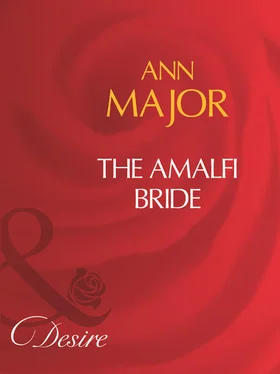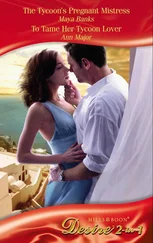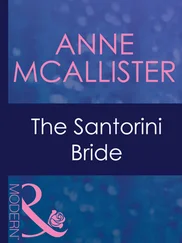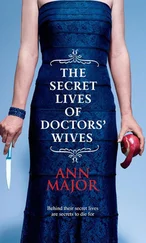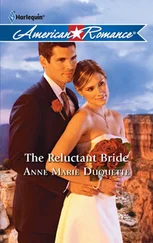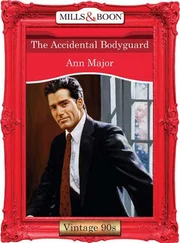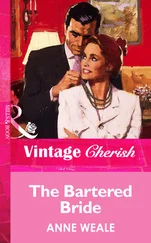“No, you’re a good big sister. You love your little brothers. Dino and David need a good big sister. Papaw is being a bad Papaw! He does that sometimes. Everybody has a weak moment once in a while.”
“Bad Papaw!”
“You’re beautiful and adorable! Everybody loves you, darling. Especially me.”
“And Pawpa?”
“And Pawpa,” Regina said, even though she’d always secretly believed that once Susana had been born, he hadn’t really needed his oldest daughter anymore.
“I love you, Aunt Reggie! Chocolate cake! Bye!”
“They’re about to cut the cake,” Susana said. “She’s just like you when it comes to chocolate. Just like you in so many ways.”
“You know I’m her biggest fan.”
“I’m just glad I caught you.”
“Me, too. Kiss all your darling children for me. I’ve missed them so much. I’ve bought two suitcases full of clothes and toys for them.”
“Joe says hi.”
Joe. Regina chewed on her bottom lip. What if Joe had married her? And she’d had children?
Susana hung up.
Her eyes misting, Regina couldn’t stop thinking about her father and the hole he’d carved in her heart.
Now that I’ve got a new, cute daughter, I don’t need you anymore.
For a long time, she stared at the dark gulf and the huge white yacht in the harbor.
Before Susana, her father had adored her. Regina had worked hard in an attempt to regain her number-one position in paradise. Always, always, she’d had to be a high-achiever, hoping against hope. But it hadn’t worked.
Susana had been charming and flaky, intuitive as she put it, and so adorable that nobody minded her bad grades or lateness. They hadn’t cared when she’d dropped out of college to marry Joe Hunt. Or even noticed that she’d stolen Joe from Regina, and Regina had been brokenhearted.
He’d been gifted, too. Law Review. Killer work ethic. He’d been her beloved boyfriend, but the moment he’d set eyes on Susana, the numerous things he’d had in common with Regina hadn’t mattered anymore.
Too bad for Regina that Joe had been the only man she’d ever really loved.
Everybody in the family thought she was over him.
And she’d told herself constantly that she was. Just as she’d told herself that all her orgasms with Bobby had been real, too.
She didn’t want to think about the fact that Nico was tall and dark and looked a little like Joe.
“Did you call Viola?”
Nico frowned. His mother, Principessa Donna Gloriana Lucia Romano—to mention only a few of her illustrious names and only one of her numerous titles—whose close friends called her Glory, was speaking Italian to him over his cell phone and quite rapidly, of course. Not that she liked Italian.
She’d been educated in Paris because her mother, Nico’s grandmother, with whom Princess Gloriana was bitterly estranged, had had a French mother and had preferred all things French.
Both Nico’s grandmother and mother loved the French language more than any other, but he preferred Italian or English, so his mother was humoring him. Because, as always, unlike Grand-mère, who wanted only his happiness, his ambitious mother wanted something from him.
“Not yet,” he said.
“Nico, tesorino, why do you keep putting this off?”
“Maybe it’s my gypsy blood.”
She ignored his comment. She never liked being reminded that their original ancestor had been a gypsy king.
“You did promise to call the Principessa Donna Viola Eugenia di Frezano today when we lunched,” she said. “You did say that you’d court her and that you’d ask for her hand in marriage as soon as possible.”
“I did. And I will. You have instructed me as to my duty for my entire life. Have I ever failed in my duty?”
The silence between them was suddenly filled with tension.
“You know that the two families have already talked, that the marriage is practically arranged.”
Of course, he knew. It would have already happened if he hadn’t been dragging his feet—grieving. His heart was in the grave, as the saying went.
“You know that today marks…”
“I know,” she said, trying to sound sympathetic. “But it’s been two years.”
His family and the family of his intended, Viola, were modern aristocrats with lineages dating back nearly a thousand years. Both families valued influence, power and money above all. Next, they counted culture, pedigree and tradition, not to mention titles—the grander and more illustrious, the better.
Nico’s parents, who’d left much of his upbringing in the hands of countless nannies, tutors and chauffeurs, had taken the time to teach him and his sister that what really mattered was money, power and luxury, in that order. Personal wishes were to be sacrificed to strengthen the family.
A young man’s dalliances with different types of women, even actresses, were regarded as necessary, perhaps even a healthy diversion. Even after marriage, such playing around was tolerated, although not advisable.
But one did not marry just anyone.
“You’re thirty-five,” his mother reminded him again, just as she had this morning when they’d driven along the narrow roads high above the coastline. “It’s time you settled down…again.”
“I did settle down.”
“She’s dead. You’re alive.”
Was he? Every time the paparazzi caught him with another beautiful actress, the tabloids referred to him as the merry widower. But they didn’t know about the guilt that tore at him over his treatment of Simonetta. How could they, when he’d been blind to what was in his heart until a month before Simonetta had died? At her death, love had overflowed inside him until he’d felt as though he were drowning.
“The principessa is very beautiful,” his mother said.
“Like a jewel with icy fire.”
“Without power and money, Nico, titles are meaningless. She has much to recommend her.”
“So you’ve told me—countless times.”
“You are a prince.”
“A lamentable fact that overly complicates my life.”
“With great privilege comes responsibility. You must marry well and behave responsibly to remain a prince. You must think of your children, of future generations. Our position has never been more fragile than it is in these modern times. Love, if one is lucky, comes after marriage. You loved Simonetta, didn’t you?”
“I was lucky. Lightning will not strike twice in the same place.” Annoyed by his mother, he drew a long breath. Somehow, he resisted the impulse to snap the phone shut. “Please, let’s not talk about Simonetta.”
“My poor tesorino.”
His mother believed grief and all emotions were luxuries for people like them. After World War II, the Romanos had lost ten castles and nearly a million acres to the Russians. The family had prospered since the war by marrying well and diversifying their business interests. They had vast holdings in the Americas, many of which Nico managed.
Still, Viola’s family had fared better in the past century and was much richer than his. His mother had begun courting Viola’s parents at Simonetta’s funeral.
“I understand that the match with Viola would be an exceedingly advantageous one for the family,” he said. “But does everything really have to be about money?”
“Of course not, tesorino. But Viola is very beautiful, is she not? She is not an ogre. You will fall in love with her.”
Nico frowned. As always, his mother had the worst possible timing. Because of Cara, he wished now he’d been more evasive on the subject of Viola when they’d lunched today at the family’s summer palazzo.
He had no taste for marriage. It was too soon. Two hellish years ago he’d lost not only Simonetta but their unborn son, as well, when the brakes of her car had failed, and she and her chauffeur had plunged off the side of a cliff on the French Riviera.
Читать дальше
